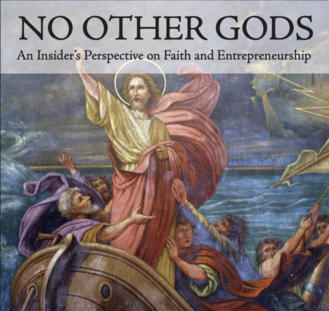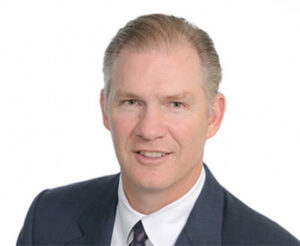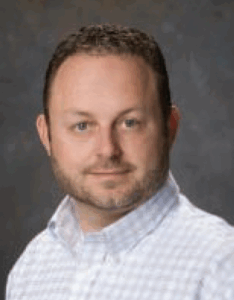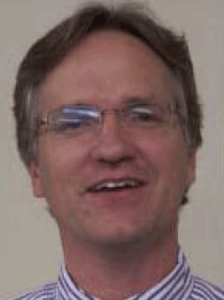[By Jimmy Adams, Fred Caldwell, John Wisenbaker, Jr.,& Brian Horner, 2016]
Editor’s Note:
On January 29, 2016, the HBU Center for Christianity in Business hosted a panel discussion with several entrepreneur business leaders on how their laser focus on faith guide the growth and shape the culture of their businesses. Brian Horner, Houston area leader of the Marketplace Chaplains, facilitated the discussion that off ered valuable insights into the practice of work faith integration for Christ-centered entrepreneurs. The CBR is pleased to provide an edited excerpt of this discussion for the benefit of our readers.
Horner: Many business people say mixing faith and business is a bad idea. You would disagree. Why?
Wisenbaker: My parents laid a foundation of faith in our business which is founded on integrity and reliability. I view my job is to take that a step further – to ingrain that in our culture. Our goal is always “Be there for our people.” If we could be there to listen when people needed us, we would have a chance to witness to them at the right time.
We don’t need to beat people over the head with the Bible. We just want them to know that’s part of our foundation, our culture.
Adams: As a Christian you have to take your faith wherever you go. God took us through many trials and made us stronger. When we are able to witness to others what the Lord has done for us and how he got us through situations, it may resonate with what others were going through. The Holy Spirit is always working and things don’t happen by accident. I look at business being the third thing in importance
– God being first and family second. Faith helps you put everything in proper perspective. I am not afraid to off end anyone, but the way you witness needs to be proper. I pray every day for the opportunities to impact others.
Caldwell: All the original disciples work including Jesus. They were all in the marketplace. They mixed their call with their vocation in making a living. I always feel that’s God’s purpose in our lives. He will use whatever platform he gives us for his glory and purpose, whether it be teaching or business. Every day I wake up to a great team of people with a common purpose – not only to do business but also to move the kingdom forward, in the way we do business, the way we treat people, and the way we reflect Jesus Christ in the marketplace.
Horner: Do you think that doing business God’s way would impact the bottom line, whether positively or negatively?
Adams: Definitely affects the bottom line. Caring for your people costs you something, but it is a crime if they are not given a chance to hear about Jesus and what he has done in your lives. In my business I have all types of employees – different languages, different education levels, different family situations. You make a can of paint and you have people’s trials written all over it. It pays to care for your employees, knowing what’s going on in their lives, witnessing to them. Sometimes you learn too much when everybody comes with a different agenda every day, but it gets us closer together.
Wisenbaker: I got a new perspective about faith in business when we moved to a different church where the preacher happens to be bi-vocational – meaning that he has a secular job and also serves as a preacher. He really does a good job of blending work and faith – his sermons are based on his work experiences. In retrospect he is probably not the best speaker I know but he is so authentic. I think we try to do the same in our company – not the most eloquent purveyor of the gospel and biblical values but be genuinely authentic. We try to treat people the way we want to be treated and drive our core values through our organization. The challenge is how you scale an organization and hold onto those values along the way.
Caldwell: What is the bottom line? I don’t know when we stand before Jesus in heaven he would ask us about a particular deal. He would probably ask us about the people we are called to shepherd. As leaders we have the great privilege of shepherding our people. At the end of the day I think the metric is how well we did in shepherding our people through good and bad times.
These days the talk is all about low oil prices and how we can steer the ship through rough seas ahead. The test of real leadership is in those rough seas. Can we be at peace like Jesus in that boat amidst the storm, knowing that God is in control? The bottom line for me is more than financial. It has to be how well we lead and bring people to Christ through the way we treat people and the way we live our lives every day.
Horner: Dr. Tim Keller in his book Reason for God said we are becoming the world, more religious and less religious at the same time. Being the people of faith and living out your Christian worldview in a world that seems to be increasingly hostile to people of faith, can you relate some instances of conflict, pushbacks perhaps, from vendors or customers as you witness for your faith?
Caldwell: I remember people questioned why we did things the ways we did, even to the point of questioning whether our way was legal. My answer has been pretty consistent: Oh, no. Frankly I really don’t care. I care but not enough to do something diff erent. Even if we suff er in leadership when we are in the heritage of Christ, for our faith, I am personally pretty cool with pushing the boundary when it comes to proclaiming the truth of Christ in the marketplace. Amazingly God has protected our business from major events because of that.
Wisenbaker: I don’t think we encountered anything that rose to the level of persecution. My view is if there is any pushback, so what? We are called to seek first the kingdom of heaven. We’ll not shirk from seeking in the face of resistance. It is immaterial in the big scheme of things.
Adams: What I experienced is when you meet someone you don’t know, perhaps a customer, you need to act genuine. The devil has deceived many with those who claim to be Christian but are not. I would present Christ whenever I could, knowing whoever facing you is watching you. Your walk needs to be what you say it is. Your employees too are watching to see if you are for real and do what you say. If you are around long enough they know what you stand for and that would be great witness for our faith.
Horner: We all grow in our walk and our faith. Was there any moment in your life you questioned your faith in relation to your business, wondering if you were on the right track?
The test of real leadership is in those rough seas. Can we be at peace like Jesus in that boat amidst the storm, knowing that God is in control?
Wisenbaker: I often wondered why God put me in the construction business. It is a hard business to stay straight and narrow. I sold a business in 2001 that I co-owned with a partner and I was naïve enough to do an earn-out in the business. We paid off the debt but my partner never paid us any of the earnout. I struggled with what would be the right thing to do. Is it legal and is it the right thing to seek legal counsel. That was one tough decision for me – it was where the rubber meets the road. For me it wasn’t just an automatic answer – go and find a bunch of lawyers to sue people – I had to search and try to understand what the right action should be. I sought counsel from my pastor and other believers.
Caldwell: I used to say we had never been sued, but it changed about 10 years ago. We now seem to be regular targets for some folks when it comes to lawsuits. From a Christian perspective we struggle with whether winning or losing actually glorifies God more. Legal matters for sure present the biggest challenge for me.
Adams: In 2010, our paint factory was torched by an arsonist. The whole 45,000 sq. ft. building was burned to the ground. Through that ordeal I was reminded of Romans 8:28 many times. I prayed for weeks and didn’t get any answer. I couldn’t talk about it for 3 months without breaking down and cried. I was on my knees a lot asking for wisdom to bring the business back up. The Lord answered. He got us back up the very first year – back to $10 million in a $15 million business in just 5 months. He presented a paint facility we could lease, in spite of all kinds of permits we had to acquire. One thing the Lord showed us is that we made pretty good paint. We competed with the big guys like Sherwin Williams and International Paint. Our customers would keep asking when we would get back into making paint for them. That gave us lots of encouragement and our employees pulled together. Now 3 years later we still had no building – applying for the permits is just a very slow process in Texas.
The Lord then presented us with an opportunity to sell. Even without any facility a buyer was willing to take over our business, believing that we are worth more money now than when we had a factory. So we sold the company. I know when there are great adversity and we pull through by faith it would bring glory to the Lord.
Horner: In contrary to common perception, we know business owners or CEOs don’t get it easy and face lots of struggle. Can you share some insights about leadership – things you learned from challenges as the business grew?
Caldwell: For sure there is no such thing as getting a Ph.D. in leadership and you are done. I am learning everyday about leading people and how to do it better. I can tell you everything not to do. I keep a little red spiral-bound notebook that for 25 years at each year end I would review the year and write down everything that I did wrong. I wish I could tell you none of the poor decisions I made I repeated, but the discipline helped.
As a pilot I run into turbulence while flying all the time. Turbulence generally existed in lower altitudes, so you need to get altitude to avoid them. In business turbulence is bound to occur almost daily. As a leader I can choose to dive into that turbulence or I can climb above it and guide the organization without being mired in issues that are not the best use of time in steering the enterprise. For example, issues involving people and personal conflicts. Biblically we learn the best response is to try to put the two parties together and see if they can resolve the issues amongst themselves first. Fly high and lead from the vantage point of what God wants you to see clearly where the organization needs to go.
We are called to seek first the kingdom of heaven. We’ll not shirk from seeking in the face of resistance. It is immaterial in the big scheme of things.
Wisenbaker: I used to think leadership is all about you, but when you get there you realize it is not about you but about your people. We run a quarterly leadership academy for the managers in our company and last year a topic we went over was on servant leadership. How can we say we value our people when the executive team takes all the parking spots close to the building while everyone else parks at the far end of the parking lot? To push authenticity we encourage the executive team to take the outside parking spaces instead. We also encourage our leaders to have a leadership position in a volunteer organization – youth soccer, church, charity, etc. Whatever it is, it is where they must lead people whom they cannot fire.
Adams: Unlike Fred, I know I cannot fit all my mistakes in a spiral notebook. When you start your business from scratch you have no followers; what you put into the business day and night is a kind of leadership as your family sees what you are doing – caring for them. Vision guides the business; any wrong move can break it, so relationship with God and prayers are so important. Again and again, every time we needed somebody God would send that person right up to our door. The Lord will put you on the right track as you lead by faith, trusting Him.
Horner: What tips would you give aspiring entrepreneurs who want to run a successful business without compromising biblical values?
Adams: Starting a business means sacrifices – time, willingness to treat others like yourself being treated, walking the talk.
Wisenbaker: When I began at the family business which my dad started twenty years earlier, I was eager to show my dad how much as a college graduate I knew so much more than he did. But when I started my own firm, I realized how little I knew about starting from scratch. When people are counting on you and there are tough choices to make, you realize you are not prepared for the sacrifices. Work life balances will be tough to get when you are starting out.
Caldwell: Starting and running a young business is a seven day a week occupation. It never leaves you, ever. I like to look at work life balance as seasons in life, as Scripture would teach us. Your family has to be prepared for those seasons. My wife fortunately was supportive of us starting a business and the sacrifices that followed. On the lip side, someone mentioned if you count up all the key events in life that led the business forward, they don’t equate to the number of hours worked. I can count 4-5 key events that allowed us to move the business forward, and they are not related to the hours I put into the business. They are more like co-incidences, like God answering prayers. Our success is probably never a result of my own eff orts and dedication, but God’s leading. Sometimes we overvalue our own effort and forgot God is actually carrying us through.
Having said that, setting priority is still important. I don’t believe the apostles led balanced life at all – most certainly they led a prioritized life. I do believe in seasons of call – prepare, work, rest – perhaps unbalanced, but prioritized.
Horner: When you hire employees, do you make them aware of your biblical convictions?
Adams: We don’t try to be politically correct when we hire. We don’t inquire about their religion, but try to get a good assessment of their values. We are upfront about being a Christian company. The applicant will make a decision based on what we disclosed.
Wisenbaker: We went over the company history and related how God used the depressing 80’s to broaden our horizon and lifted us up as a company. We don’t have a litmus test for employees but we certainly make it clear we thank God for what he has done to this company.
Caldwell: In every interview we say we are a faith-based company. We hire non-Christians because they present great witness opportunities – and some became believers. We make it known that we are a great company with great culture and we attract highly qualified people. We hope they find Christ in that culture. Our vision statement starts with “We honor God by…” People who don’t feel comfortable will opt out very quickly on their own.
Horner: How do churches and universities prepare young people who want to live their faith out while being the best possible worker?
Adams: I read that more and more kids are not getting the history of our country – how it was founded on God’s principles. Our founding fathers fasted and prayed when they had problems or conflicts and they came back together after beseeching the Almighty. Churches should be teaching about what we can and cannot do in the face of challenges from political correctness. For example, we are told that you cannot bring God into school because of the separation of church and state, etc. But I know we have freedom of religion, not freedom from religion. Christians sometimes become squeamish and fail to stand up for what is true.
Wisenbaker: My pastor does a good job of integrating work and faith since he has a full time job outside the church. I look to church and faith-based institutions to teach how we can integrate work into faith.
Caldwell: When I ask a roomful of students how many want to be a great sales person I usually get one hand. I don’t know any successful business person who is not also a great sales person and a good communicator. Effective communication is a very biblical model when we look at the apostles and Jesus. It needs to be an integral part of the leadership preparation in college.
About the Panel
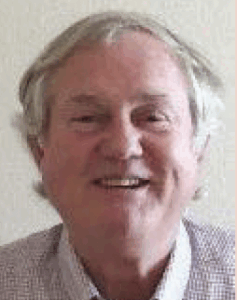 Jimmy Adams was founder and CEO of American Coatings, a Protective Coating and Industrial Paint company in Tomball, Texas. Until the sale of the firm in 2014, American Coatings was one of the Top 50 privately owned paint companies in the U.S. Before American Coatings, Jimmy was involved in several ventures, including a real estate company and his father’s paint company. Jimmy has been an active member of Gideons International and has been the organizer of the Christian Business Luncheon in Tomball, Texas since its inception in 2002. Jimmy earned a Degree in Chemical Engineering from Texas A&M University.
Jimmy Adams was founder and CEO of American Coatings, a Protective Coating and Industrial Paint company in Tomball, Texas. Until the sale of the firm in 2014, American Coatings was one of the Top 50 privately owned paint companies in the U.S. Before American Coatings, Jimmy was involved in several ventures, including a real estate company and his father’s paint company. Jimmy has been an active member of Gideons International and has been the organizer of the Christian Business Luncheon in Tomball, Texas since its inception in 2002. Jimmy earned a Degree in Chemical Engineering from Texas A&M University.
Fred Caldwell is the President and CEO of Caldwell Companies, a 25-year old fully integrated residential and commercial real estate firm involved in the development of planned residential communities, commercial office, retail and industrial projects, as well as in brokerage services and private equity investments. Fred serves on the Board of Directors of the Cy-Fair Educational Foundation, the 12th Man Foundation Executive Board, the Texas A&M Mays College & Graduate School of Business Development Board, the Lone Star College System District Foundation and the JH Ranch International and Outback Ministries boards. Fred holds a degree in accounting and a master’s degree in finance from Texas A&M University.
John Wisenbaker, Jr. started his career with the family’s Wisenbaker Builder Services in the capacity of outside sales, where he was instrumental in leading the company’s diversification into new flooring and countertop products. In 1998, John co-founded U.S. Stone, a manufacturer, fabricator and distributor of Avanza® brand quartz countertops, which became the preferred supplier of quartz countertops at Lowe’s stores throughout the U.S. In 2003 he returned to Wisenbaker Builder Services as president and led its subsequent growth. John is active in his local church and involved in various youth organizations. John holds a Bachelor of Science in Industrial Distribution from Texas A&M University.
Brian Horner (moderator) has for over thirteen years been serving as Division Director of Marketplace Chaplains, the world’s largest and oldest employee care organization which sends chaplains into corporations and businesses caring for the most valued resource – employees and family members. Brian previously held sales management and marketing positions in the healthcare industry. He is a graduate of the University of Texas at Austin and Southwestern Baptist Theological Seminary.








